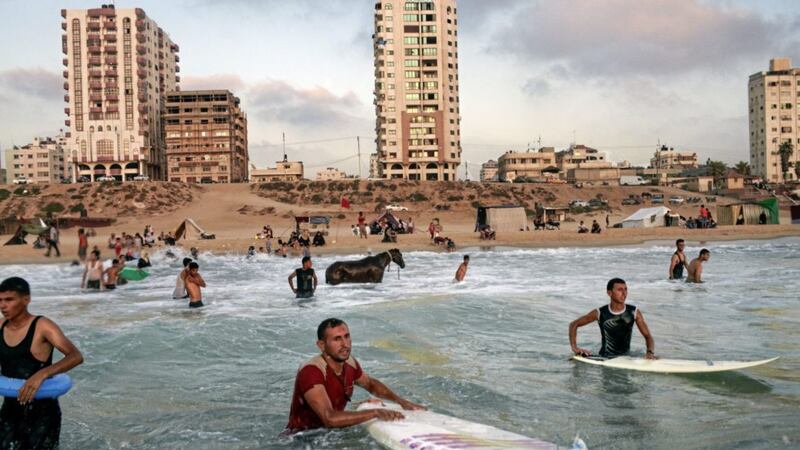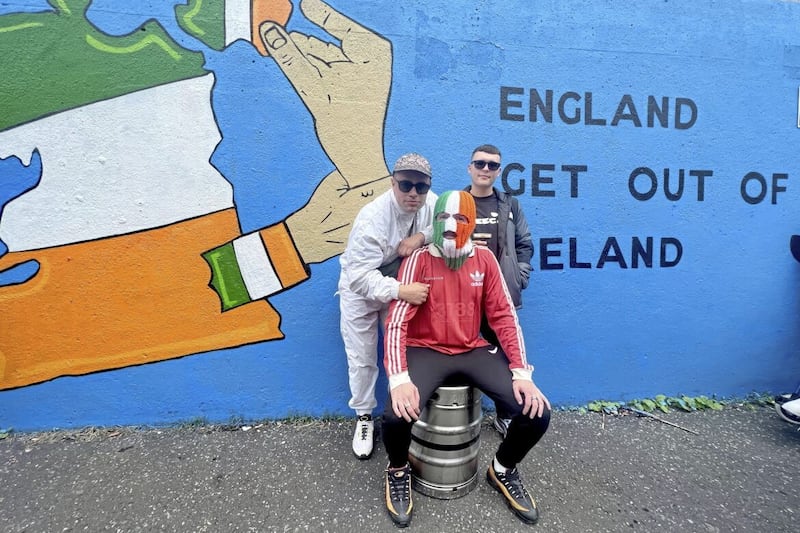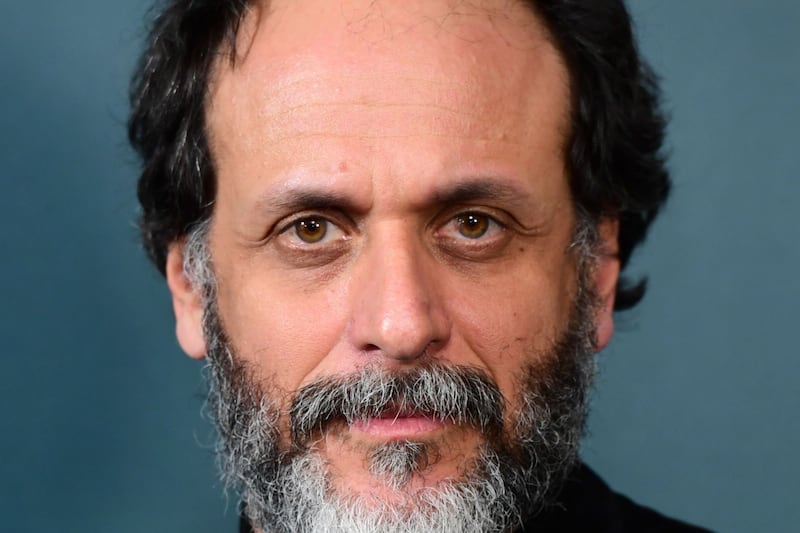A FIRST-TIME collaboration between Irish directors Garry Keane and Andrew McConnell, Gaza premiered at the Sundance Film Festival in Utah last week.
Co-produced by Belfast-based Fine Point Films (No Stone Unturned, Bobby Sands: 66 Days) – making it the first documentary from a Belfast-based production company to premiere at Robert Redford's prestigious event – with major financial support from Screen Ireland, the empathetic and visually arresting film focuses on day-to-day life in the embattled 25-by-seven mile stretch of Mediterranean coastline that's home to two million people.
The film introduces us to a diverse selection of ordinary Gazans – cello-playing law student Karma, teenage aspiring fisherman Ahmed, photographer-turned-lifeguard Mahmoud, a veteran tailor, a taxi driver and others – who talk about their lives on the Gaza Strip under Hamas rule and the impact of Israel's land, sea and air blockade, which has been in place since 2007.
Shot over four years from 2014 to 2018, Ballyshannon-born film-maker Keane's collaboration with Beiruit-based Enniskillen-born still photographer McConnell coincided with Israel's anti-Hamas military operation Operation Protective Edge.
This 50-day war resulted in over 2,200 deaths, the majority of them Palestinians – including 500 children – during July and August 2014.
A contender in the Sundance World Cinema Documentary competition, while Gaza may have lost out to Macedonian bee-keeping film Honeyland at the awards on Saturday night, producer Brendan Byrne told me that "it was great just to have the film selected for [Sundance] – anything else would be a bonus" when he spoke to me from the festival on Friday afternoon.
Indeed, the Belfast man was extremely pleased with how the film, of which Trevor Birney, who also worked on Loughinisland killings film No Stone Unturned, is executive producer, was being received at its daily Sundance screening and Q&A events – for the most part.
"It's gone down brilliantly," said Byrne. "We've had three screenings, all full. There isn't anyone at Sundance who doesn't know about the film.
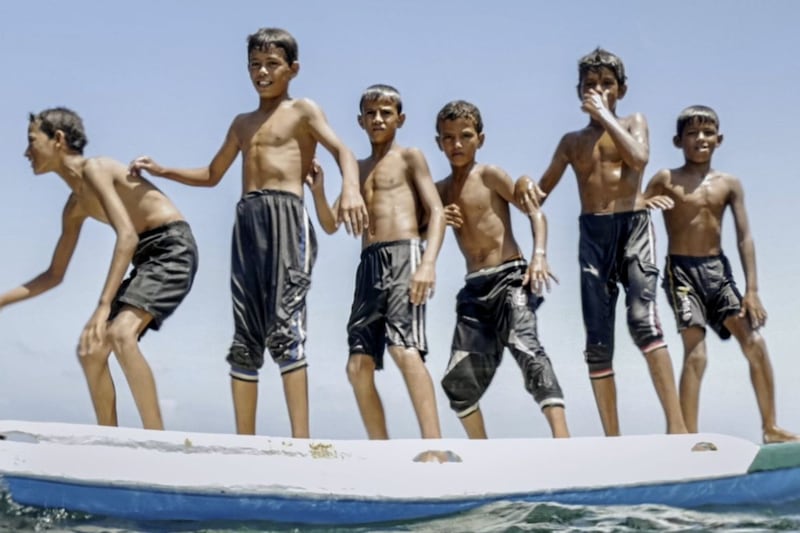
"Obviously, there have been a couple of questions from people with strong opinions from the pro-Israel side who feel that we really haven't been hard enough on Hamas.
"That's to be expected, of course, and it's not something we shy away from answering – though a couple of people asked their questions and then left. That's not the way to go if you want to engage in a debate.
"[Generally] the audience response has been fantastic – in many cases people have said 'thank-you for making a film about this place in a way that we haven't seen before'.
"I think one of the things that works for people is how the film looks in terms of it overturning the stereotypical images of [Gaza], which they've never witnessed in this way before – and then there's the level of intimacy the directors have had with this rich array of characters. That combination has given us a fantastic response."
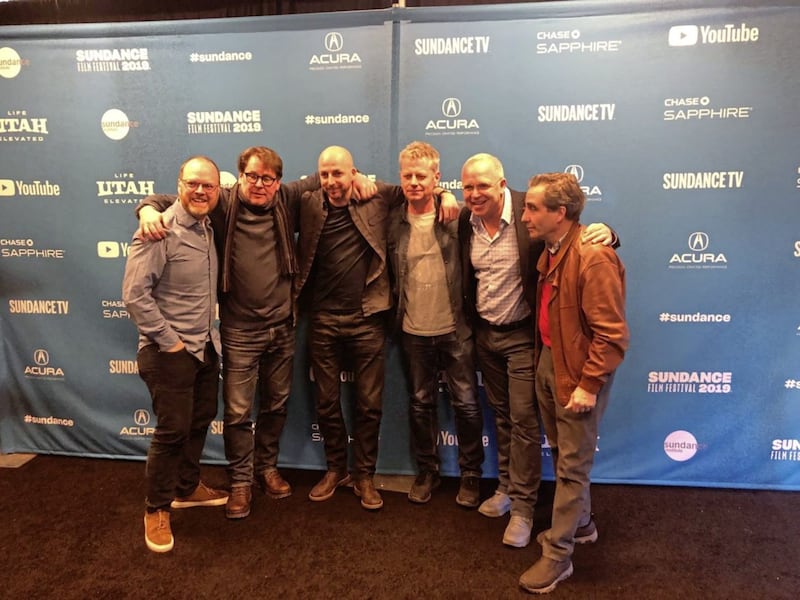
While The Hollywood Reporter review criticised Gaza for "descending into propaganda" by excluding any Israeli perspective on the conflict, Byrne explained that the film-makers set out to make a documentary about people, not politics, due to their "exhaustion and disappointment with political reporting and the sense of déjà vu or fatigue we have have with newsreel images of Gaza in the Palestinian-Israeli conflict".
He said: "Our whole mission was to turn our camera away from that and into the streets and homes and lives of ordinary Gazans. But we also understood that it's impossible to make a film about Gaza that others wouldn't graft their own political opinions on to.
"Therefore, we know – and hope, in some ways – that the film creates a talking point and helps generate a debate around the situation.
"The most important thing in our film we're trying to highlight is the richness of these characters' lives. They deserve what we take for granted in terms of freedom and the ability to travel, so in many ways it's a kind of cinematic prière de coeur for these people's basic human rights to be respected."
In fact, with border crossings into Israel and Egypt still only sporadically accessible and Hamas dictating who is permitted to travel beyond Gaza, one of the film's subjects, actor, director and playwright Ali Abu Yaseen and Gazan crew member Fady Hossam, were actually denied permission to attend the documentary's premiere at Sundance.
"Both of them were hoping to get here," explains Byrne. "Labyrinthine efforts were made by ourselves and the Sundance Festival involving contacting the American consulate in Cairo – who were responsive and were going to facilitate [visa] interviews – and [US senators] Mitt Romney and Diane Feinstein also made some efforts on our behalf.
"But at the end of the day, the border was opened too late and our guys were nowhere near the top of the list. It was another kick in the teeth for them and absolutely emblematic of the injustice of the blockade. It's such a shame."
Incredibly, Gaza production manager and 'fixer' Hossam has never seen any of the films he has worked on to date – because there are no cinemas left standing in Gaza to screen them.
Byrne said he hopes this situation will change in the very near future and that a screening of Gaza in Gaza will take place.
"We're working on that at the moment," he told me. "All of the contributors from the film are in touch with us every day here while we're at Sundance. In fact, two of them have sent us short films that we're playing at the end of each of the screenings.
"Karma's mother sent us one thanking the audiences of Sundance for responding so strongly to the film and reiterating the message that their suffering is not fair.
"All they want is the basic freedom that you and I enjoy. That is obviously a really strong message in today's polarised world, especially in the country I sit in now where everybody is largely fixated on their own problems and their own border issues and the heightened chat of right-wing politics.
"It's films like Gaza that help remind people that there are other parts of the world that genuinely have much greater and much more unjust problems that deserve their attention."
:: Gaza will screen at the Dublin International Film Festival in March before going on general release later in the year. See Gazadocumentary.com for further information.
